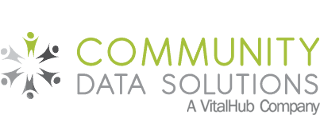
Tips for NFP Board Members to Help Develop their Organisation
We exhibited at the Better Boards Conference in Adelaide and thought this was an appropriate time to consider the data management issues that boards should be thinking about, particularly in the community services space.
Much of the data collected by community service not-for-profits is fragmented, and data policy is often driven by Government funding reporting requirements. However, the tipping point is rapidly arising as more CEOs, senior managers, and Boards are looking for more than just segmented program data sets which are isolated from each other. They want, and need, more robust agency data! Boards are seeking more real-time data from the organisation, including service outcomes, service cost-efficacy, performance of different office locations etc.
The development of online CRM data management systems greatly enhance the capacity of NFP boards and CEOs to access relevant data in an accessible manner. From a Board perspective, the features they should be looking for in a CRM system are:
- Key Performance Management data collection and aggregation features;
- Agency wide reporting;
- Key client outcomes data;
- Capacity to track grants, tenders, contracting and research data;
- Capacity to track income from fundraising, events, memberships over time;
- Capacity to create benchmarks and targets for various aspects of service delivery;
- Ensure the CRM is capturing all Government require reporting fields; and
- Capacity to track client stories and positive feedback within the CRM.
Beyond this NFP boards and CEOs should be working together, strategically, in two core areas:
- The emerging Collective Impact space provides a great opportunity to do much more with data. Sharing data across multiple agencies in a region or locality, helps aggregate local trends and developments within target groups which benefits service delivery in the long-term.
- Working with all tiers of Government towards more reasonable and sensible data requests would enhance all Not-for-Profits at the local level to develop more manageable data systems for the greater benefit of their clients.
Organisations and Government should work towards a Data Compact that would ensure data reporting has the three core components:
- Common easily generated data formats
- Case Management and client data is stored at the organisational not Government level
- Governments provide minimum data sets for services and bulk upload portals for data.
Boards are challenged to support their organisation with resources for improved data collection, and we at Community Data Solutions are happy to provide free initial advice for Boards, CEOs or senior managers on their current and future plans for improved data management. Start a Conversation with me for more information on how to find the best data collection resources for NFP organisations.

Recent Comments